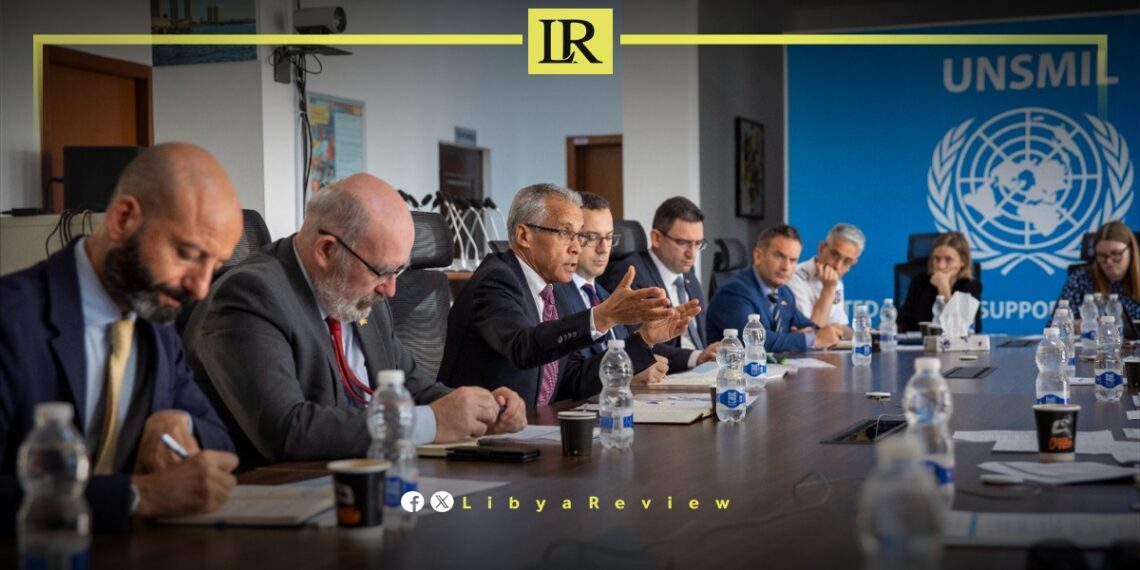Stephanie Khoury, Deputy Special Representative of the Secretary-General and Acting Head of the United Nations Support Mission in Libya (UNSMIL), met with the Security Working Group emanating from the Berlin Process to discuss ways to support Libyan security institutions and stakeholders in achieving sustainable peace and stability.
The meeting, attended by co-chairs from France, the United Kingdom, Italy, Turkey, and the African Union, reviewed steps to support Libyan efforts in unifying security and military institutions, building trust, and enhancing respect for the ceasefire agreement, according to UNSMIL.
In a separate context, Khoury discussed the latest security developments in the country with Mohamed Al-Haddad, Chief of General Staff. During their meeting in Tripoli, Khoury emphasized the importance of unifying state institutions, particularly security institutions.
Khoury reiterated the necessity of enhancing political consensus and unifying the country’s institutions to meet the needs of Libyans and maintain Libya’s sovereignty, as stated by UNSMIL.
In another meeting, Mohamed Takala, Head of the High Council of State (HCS), discussed the latest political developments on the Libyan scene with Stephanie Khoury, the Acting Head of UNSMIL. Takala and Khoury reviewed the UN mission’s vision for proposals to resolve the Libyan crisis and how to achieve comprehensive consensus to end the transitional phases, according to the HCS media office.
Libya has been in chaos since a NATO-backed uprising toppled longtime leader Muammar Gaddafi in 2011. The county has for years been split between rival administrations.
Libya’s economy, heavily reliant on oil, has suffered due to the ongoing conflict. The instability has led to fluctuations in oil production and prices, impacting the global oil market and Libya’s economy.
The conflict has led to a significant humanitarian crisis in Libya, with thousands of people killed, and many more displaced. Migrants and refugees using Libya as a transit point to Europe have also faced dire conditions.


